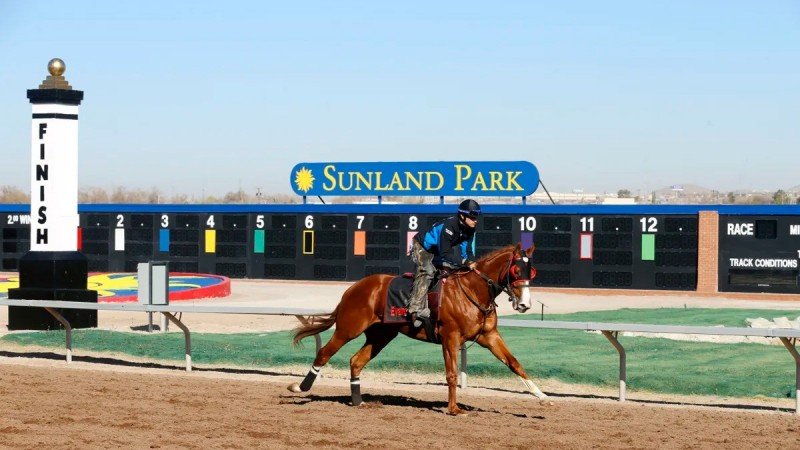New Mexico tribes worried about proposal to expand gambling

A proposal by commercial racetracks and casinos to open New Mexico to Las Vegas-style gambling is raising concerns among Native American leaders who believe it would compromise the ability to bring in money for their communities.
"This proposed legislation presents not only a renewed challenge to our economic security but a reckless attempt to expand private wealth at the expense of our ability to provide essential government services," Sandia Pueblo Gov. Stuart Paisano said.
They testified during a legislative meeting Monday that allowing unlimited slot machines, table games, online gambling, and sports wagering at the horse tracks and casinos would shift the market and violate exclusivity provisions outlined in existing revenue-sharing compacts that tribes have with the state, the Associated Press reports.
The pueblo’s resort and casino on the northern edge of Albuquerque have been closed for months because of the coronavirus pandemic. Calling the gambling operation the backbone of the pueblo’s economy, Paisano said there’s considerable uncertainty about how tribal operations will be affected going forward.
Monday’s meeting marked the first time tribal leaders have spoken publicly about the proposal to expand gambling.
They said they were not approached about the plan until days before representatives of the non-tribal tracks and casinos testified before another legislative panel earlier this month.
Track executives predict that expanded gambling would boost tourism and ensure the survival of the horse racing industry in New Mexico. They also have said that under the proposal, tribes would benefit by no longer having to share revenues with the state and could instead invest that money in tribal programs.
The tracks and casinos — also known as racinos — and tribal gambling operations all have revenues shrink in recent years, even before the pandemic. A 2019 report by legislative analysts showed a 10% decline from 2012-2018 in annual revenues shared by tribal casinos with the state, shrinking to $62.8 million.
The legislative analysts noted at the time that the online gambling industry, which is not authorized in the state, may be drawing a share of the market away from New Mexico casinos.
Scott Scanland, a lobbyist for Sunland Park Racetrack and Casino in southern New Mexico, reiterated Monday that the proposal is simply an idea and that track executives are interested in starting a conversation about how to grow the industry into something that would attract a wider demographic and benefit restaurants and other venues.
He presented a 2019 study that looked at the potential of tapping into online gambling and sports betting.
Some lawmakers said more analysis would have to be done because the pandemic has upended casinos in New Mexico and elsewhere and that the most favorable revenue figures included in the report hinge on opening a sixth racino in the state — a proposal that already has been mired by numerous political and legal challenges.
At least a dozen tribes have voiced their reservations about overhauling New Mexico’s gambling rules. Santa Clara Pueblo Gov. J. Michael Chavarria said Monday his tribe is among those that have outlined their concerns to New Mexico Gov. Michelle Lujan Grisham and state legislative leaders.
Nora Meyers Sackett, a spokeswoman for Lujan Grisham, said Monday that the governor’s office thoroughly reviews legislation as it makes its way through the Legislature and that would be the case if any measure related to gambling is introduced during the upcoming session in January.
“The governor has a very deep respect for the tribal gaming compacts and their importance to the sovereign nations within our state,” she told The Associated Press.
Lawmakers acknowledged the proposal could have significant effects on tax revenues and that more data is needed to better understand the implications for the state budget as well as tribal communities.
Democratic Rep. Antonio Maestas of Albuquerque, chair of the legislative economic and rural development committee, said the pandemic has forced the state’s hand with regard to tackling difficult issues and that gambling, tourism and the need to to boost revenues are among them.
“This is definitely a topic that is deserving of a conversation,” he said.
















































